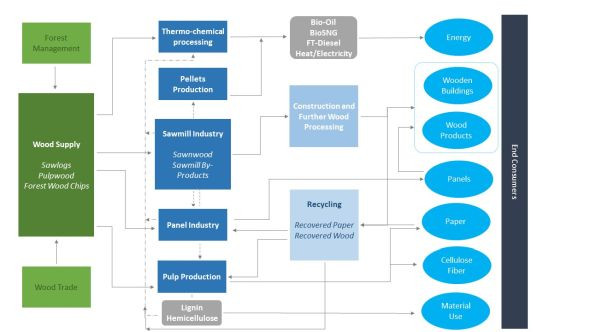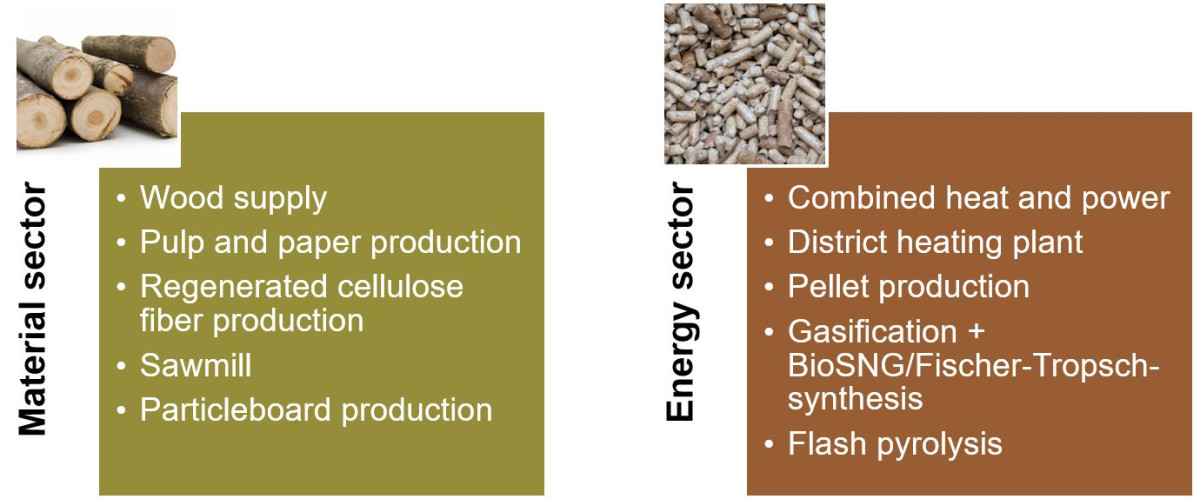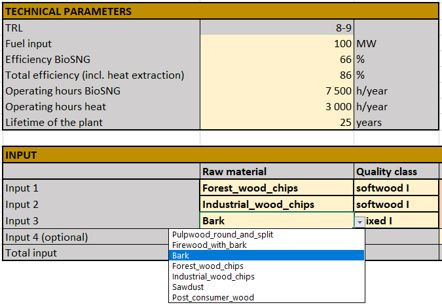BioEcon – Techno-economic modelling of bioeconomy value chains
The transition towards a bioeconomy will rely to a large extent on the advancement in technology of a range of processes, on cost competitiveness, on the achievement of breakthrough in terms of technical performances and will depend on the availability of sustainable biomass. The project aim was to identify and evaluate current and future challenges and chances for the wood-based industries.
For this purpose, the wood-based sector has been broadly analyzed. Aspects, which were addressed in the BioEcon project, are:
- Biomass potentials: The availability of selected wood assortments as well as their market development were depicted.
- Wood-based value chains: Both already established and innovative value chains were described in detail. This description includes all relevant process steps, raw materials used, raw material requirements, logistics, actors, market development and an analysis of strengths and weaknesses (SWOT analysis).
- Social acceptance: Based on a literature review, the social acceptance of bio-based products was addressed.
- Interactions: On the basis of a literature review as well as econometric analyses, interactions between the value chains considered were investigated.
- Scenario analysis: Future supply and demand as well as price developments were analyzed on the basis of existing scenarios.
- WoodValueTool: The so-called WoodValueTool is an Excel-based tool for techno-economic assessments of all considered value chains. The modification of pre-defined parameters provides the individual representation of investment and operating costs of defined processes. For example, the raw materials used and the plant capacities can be varied.
Outlook: In a follow-up project (start Q2/2023), the WoodValueTool is to be expanded to a BioValueTool by including further raw materials and sustainability aspects. In this way, an ecological assessment can be made in addition to the economic perspective. New functions to be included are for example the calculation of the global warming potential and CO2 taxes. In this way, the added value of a process can ultimately be optimized.
Projektvolumen
EUR 400.000,--
Projektlaufzeit
2019-04-01 - 2022-04-01
Supported by
FFG, COMET
Projektpartner
- Universität für Bodenkultur Wien
- Österreichische Bundesforste AG
- Mondi AG
- NAWARO Energie Betrieb GmbH
- Österreichische Vereinigung für das Gas- und Wasserfach (ÖVGW)
Contact

Christa DISSAUER
christa.dissauer@best-research.eu
Area Management

Christoph STRASSER
christoph.strasser@best-research.eu


